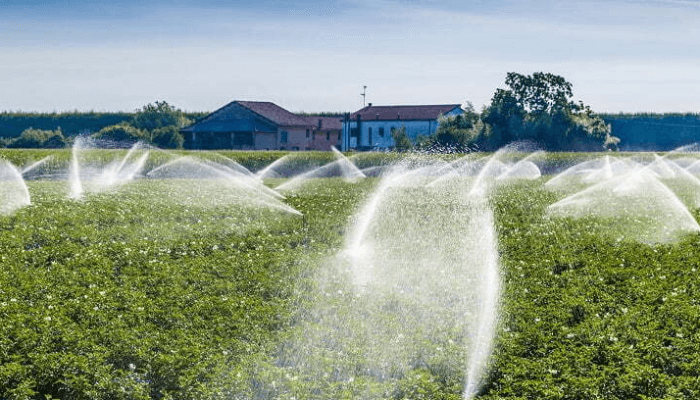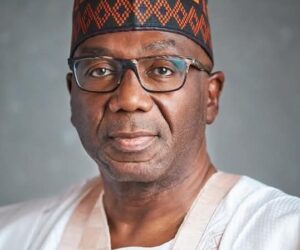…say new investment could spell doom for Ogun, Nigeria
Civil Society Organisations (CSOs) on the platform of Health of Mother Earth Foundation (HOMEF) and Environmental Rights Action (ERA) in partnership with Youth in Agroecology and Restoration Network and HEDA Resources Centre, have raised concerns over JBS $2.5 billion investment in Nigeria.
Businessday recalls that, in February, Ogun State secured a $2.5 billion investment from JBS to boost livestock development, while the JBS team had paid a working visit to the Livestock Ministry.
The CSOs at a stakeholders workshop in Abuja, last week Wednesday, tagged ‘Implications of Industrial Animal Farming in Nigeria’ organised by HOMEF, called on the Nigeria’s Government and Communities to ensure that due diligence is conducted on the JBS company to protect the nation from unforseen implications of industrial farming for a country such as Nigeria
The organisations in their various presentations said industrial farming posed several risks including environmental degradation, climate impact(biodiversity losses), economic displacement, food security trade offs as well as governance accountability questions.
Other concerns raised by the activists include land grabbing in communities, militarisation of communities, casualization of workers, deforestation through tree cuttings and chemical spraying which raises health and environmental concerns, among others.
Marrian Bassey-Olson, Executive Director, Environmental Rights Action, raised particular concerns on the interests of JBS in Nigeria.
According to Bassey-Olson “We are not anti-investment, we are just protecting our people, our environment, and also our health, because ultimately, if our food becomes tainted, it ends up in our tummies”.
Questions asked by Bassey-Olson on whether Nigeria’s Government had carried out due diligence on JBS received an urgent answer, which noted that “JBS as a corporate body and had carried out Environmental Impact Assessment on the communities they would want to work in.”
“We are Nigerians, and we have a right to be protected. We have a right to live in an environment that is safe, not just for us, and also to live it for generations unborn to come in and eat safe food and safe environment, as provided in the African chapter.
Also speaking, Joyce Brown, Director Programmes, HOMEF stressed the need for Government to be more critical of large scale industrial farming investments with long term implications on environment, sustainability and livelihoods of local food producers and communities.
“We must ensure that proper environmental and social impact assessments are conducted. We must also strengthen policies to ensure proper regulation of industrial activities. One critical provision to strengthen in our policy is strict liability to ensure accountability on the part of corporations”, she said.
Meanwhile Opeyemi Elujulo, Executive Director, Youths in Agroecology and Restoration Network (YARN), said his concerns bordered on JBS Investment, leading to a competition for communities resources, environmental degradation and impact on small holder farmers, who are majorly are the ones said to be feeding the nation
“JBS, is a multinational company, and may out-compete smallholder farmers for resources like land and water, affecting their livelihood. Large-scale farming by corporates like JBS can lead to land degradation, deforestation, and pollution, impacting biodiversity, climate, and public health”, he noted.
Smallholders may struggle to compete with big corporates, potentially driving them out of business and affecting their livelihood” he added
Opeyemi believed that rejecting JBS investment wouldn’t negatively impact youth farmers, as many young people are already moving away from traditional farming methods. “Introducing young people to sustainable agriculture practices like agroecology could encourage them to engage in farming, reducing dependence on agrochemicals and imported materials.
Opeyemi stressed the need to train young farmers in sustainable practices like organic fertilizers, biopesticides, and agroforestry can reduce production costs and make farming more attractive.
He called on the Government to promote Sustainable Agriculture and also build the capacity of young farmers in sustainable practices can reduce production costs and make farming more viable.
But, Tenison Williams, Regional Director for Africa, World Animal Protection, emphasised that they are not anti-investment, but believes in an equal playing field for all.
“The guiding principle should be transparency, fairness, and community involvement in decision-making. We want to ensure that JBS’s investment benefits both the company and the local communities” he added
Expressing his concerns, he said “We are concerned about JBS’s investment model, which prioritises massive animal production over community well-being and transparency. They take away power from communities to decide on land acquisition, and their track record is not transparent.”
Williams added: “JBS has a comparative advantage in acquiring credit or loans from big banks, which they use to convince countries to partner with them. This raises concerns about the balance of power in negotiations and the potential for exploitation.”
Recalling the mistakes made in the oil sector which had left the South-South Region severely devastated, Williams said, “We don’t want Nigeria to repeat the mistakes of the past, like the experience with Shell. We urge the government to ensure transparency and fairness in negotiations with JBS. Millions of hectares of land are at stake, and Nigeria’s wildlife could be compromised.”








